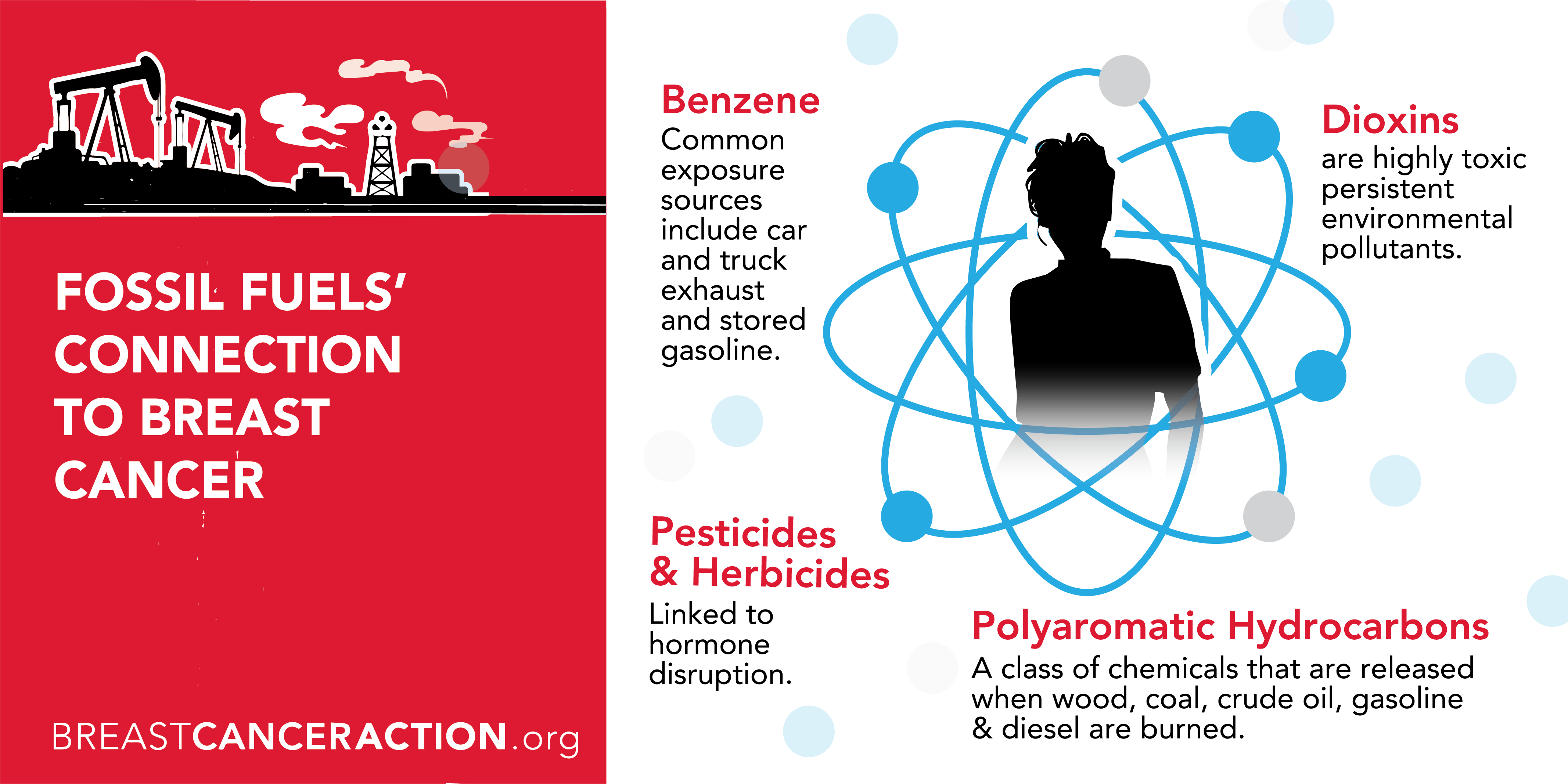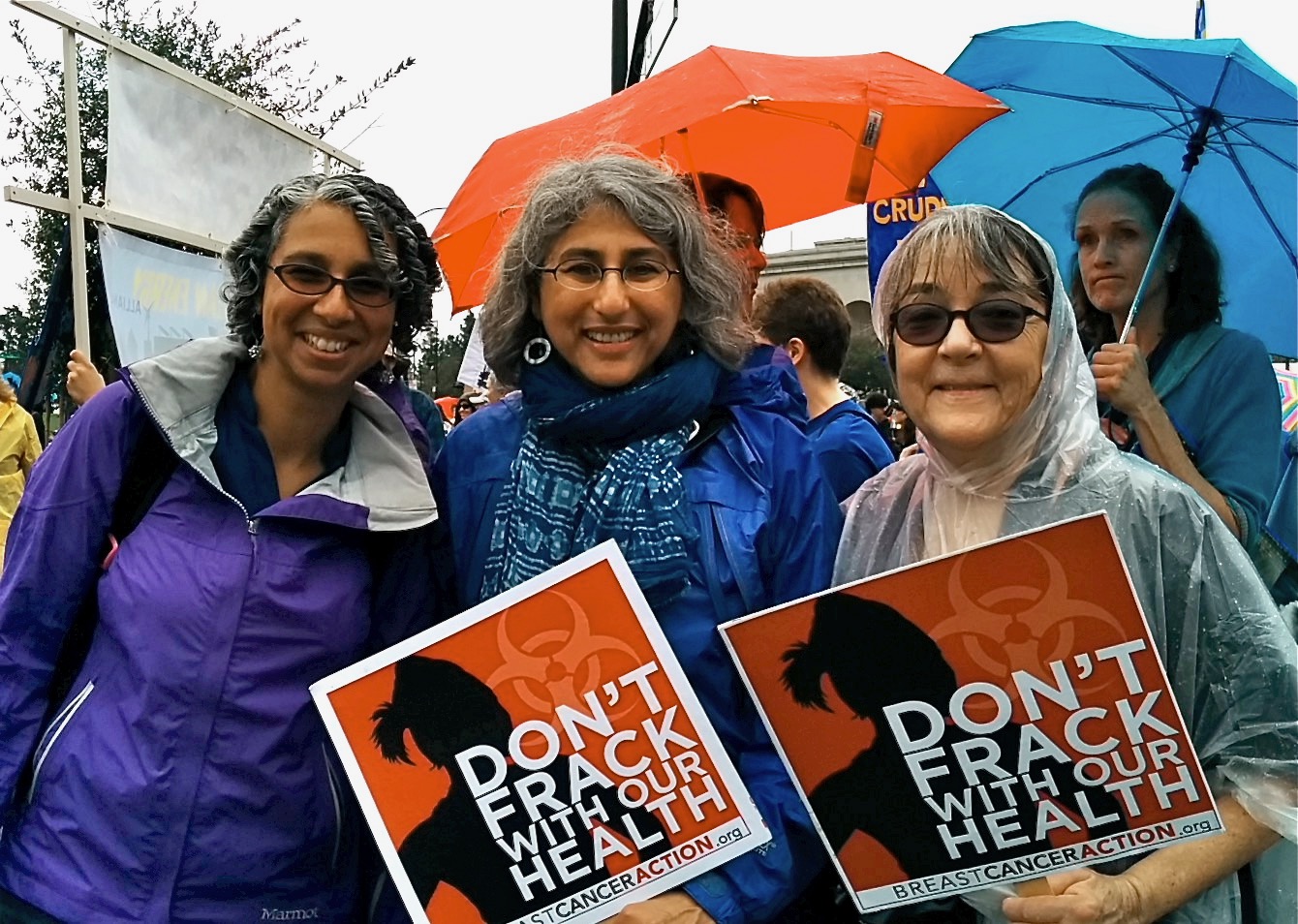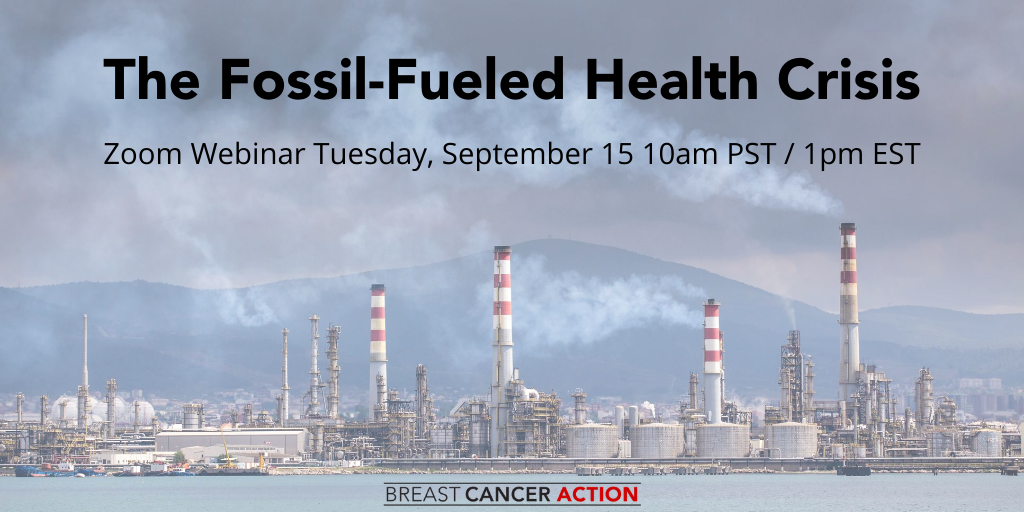Fossil fuels are fueling both the climate crisis and the breast cancer crisis.
Every year in the U.S., more than a quarter of a million people are diagnosed with breast cancer—a number that continues to rise. Only around 15 percent of all breast cancers are linked to family history, which raises the question: “What causes breast cancer?” Increasingly, researchers are accumulating data on the environmental links to the disease, including exposures to fossil fuel-based chemicals.
Toxic exposure from fossil fuel infrastructure is harmful in more ways than one. Exposure to cancer-causing chemicals, hormone disruptors, and other chemicals of concern throughout the fossil fuel continuum have huge impacts. When children assigned female at birth are exposed to environmental toxins during critical windows of development (for example, puberty and in utero), it can influence breast cancer risk throughout their lives. When people who are currently in treatment for breast cancer are exposed, conditions may worsen. Frontline communities, the majority of which are made up of low-income people of color, are disproportionately exposed to environmental toxins, and as a result, they are burdened by worse health outcomes.
Black, Brown, and Indigenous communities are systematically harmed by fossil fuel industry operations. This harm arises from historic and ongoing planning, zoning, and lending practices that lead to communities of color being disproportionately exposed to high levels of air, water, and soil pollution from fossil fuel projects.
Breast Cancer Action is working to eliminate harmful exposures from fossil fuels by disrupting the fossil fuel continuum. We are proud leaders in the state of California working to end fossil fuel-based projects and working on national efforts to stop the fossil fuel health crisis.



August 28, 2020